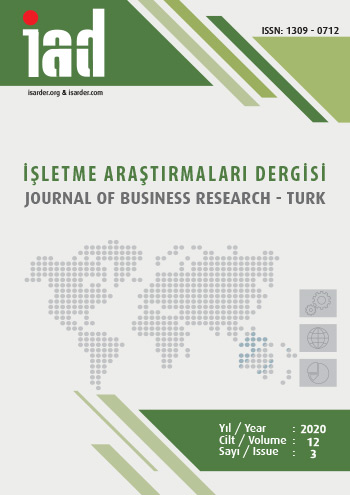Kriz Yönetim Süreci Değerlendirme Ölçekleri Geliştirilme Çalışması
Development of Crisis Management Process Assessment Scales
Author(s): Mustafa Aslan, Derman Küçükaltan, Doğan UzunSubject(s): Business Economy / Management, Health and medicine and law, Marketing / Advertising
Published by: Orhan Sağçolak
Keywords: Crisis; Crisis Management; Crisis Management Scale;
Summary/Abstract: Purpose – The purpose of this study is to develop scales that can measure the management processes of crises that are being experienced very often and affecting our entire life deeply. Almost all organizations experience crises, and sometimes they find themselves in another crisis before the one ends, and the crises that are not managed well become devastating for organizations. In our study, it is aimed to develop scales that will measure the management activities of pre-crisis, during the crisis and post-crisis, and will be used in studies and to assist the practitioners with the results obtained from these studies. Design/methodology/approach – The research was carried out with executives working for companies operating in Istanbul, and the convenience sampling method used. The questionary form has two sections: the first section is to measure the demographic features of participants, while the second part consists of the statements developed by the researchers to measure the management activities before, during, and after the crisis experienced. The questionnaire forms were delivered to the participants in electronic form, and the data obtained were subjected to validity, reliability, and exploratory factor analysis using statistical package software. Test results and obtained Cronbach Alfa, percentage of the variance extracted, and R2 values were interpreted and reported. The crisis management model created using the scales obtained in this study was also tested with SEM (Structural Equation Model), and R2 values of each variable in the model were reported. Findings – As a result of the analyzes, seven scales obtained to measure management activities and the perception created by these activities and their results. The reliability of all scales was above the threshold value of 0.60 (Lyberg et al., 1997; Kılıç, 2016), and the lowest reliability value was measured in the activities and precautions scale (α=0,834), and highest in the perceived success of crisis management (α=0.963). The lowest variance extracted was measured as 71% in the environmental screening scale while highest as 87% in the preparation and planning scale. The lowest measured R2 value was in the financial precaution scale (0.09), while the highest in the perceived success of the management (0.79). Discussion – Considering the seven scales obtained from this study and the model created with these scales, it is seen that financial precautions and retrenchment that widely practiced in crisis times are actually worsen the impact of the crisis on the organizations, while production, sales and marketing activities eliminate the reverse effects of the crisis. It is also observed that the financial measures also negatively affect the perceived success of both the applications and the management in crisis time, and the production, sales and marketing have a positive effect. Considering the estimation power of preparatory activities carried out before and during the crisis (R2 = 0.60), it turns out that environmental scanning mostly affects this this phase.
Journal: İşletme Araştırmaları Dergisi
- Issue Year: 12/2020
- Issue No: 3
- Page Range: 2382-2406
- Page Count: 26
- Language: Turkish

